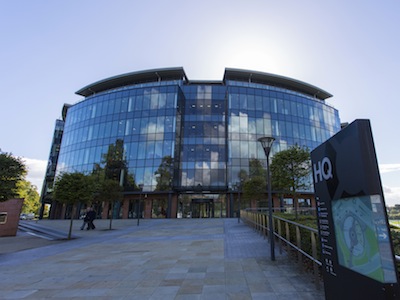
Ofsted recently rated Cheshire West and Chester as one of the top-performing children’s services in the country.
While the council is rated good overall rather than outstanding – a feat no council has achieved since Ofsted changed its inspection frameworks in 2013 – it did get top marks for its adoption work and its leadership.
Community Care caught up with the authority’s strategic director for children and young people Gerald Meehan to find out about work that helped the authority get the thumbs up from Ofsted.
1. Adoption planning
“Adoption is involved intimately with all our children’s cases from a very early stage,” says Meehan.
“We have a dedicated family finder who tracks all children in pre-proceedings, follows them through the legal planning meeting and keeps abreast of assessments of all potential family members.
“The culture is adoption isn’t something you think about when other things have failed, you think about it right at the beginning.
“And because our adoption team know the cases coming through so well at such an early stage, we are able to better identify families who will be a good match.”
2. Adopter recruitment
Ofsted reports that Cheshire West and Chester’s “highly successful” adopter recruitment strategy means the authority has more than enough adopters to meet demand.
An effective part of that strategy, says Meehan, is how the service goes into workplaces to find would-be adopters. “We’ve gone out and worked with, for example, Vauxhall Motors,” he says.
“The companies give us permission to talk to their workforce. It’s about going out and engaging the public in a different way. We need something much more, given the increased volumes, than just doing the traditional ‘Would you be able to adopt?’ advert.”
More adopters means better, more stable placements too.
“We’ve always got a pool of adopters much bigger than we need at any given time so there’s choice and we can think about a much more sophisticated match so that you reduce the possibility of breakdown.”
3. Multiagency support
In 2013 the council created an Integrated Early Support team, which Ofsted says reduced demand on children’s social care by 10%.
The team is a multiagency service – “a public sector service, not a council service,” notes Meehan – that assesses families and arranges support from services including adult social care, Troubled Families and careers advice.
“We’ve seen quite a significant reduction in police second-time call outs on domestic violence,” says Meehan.
“We’ve been able to deal with issues earlier on at source and maybe challenge some dysfunctional behaviors in families which has reduced some of the demand coming through and is great for children, partners and others.”
4. Information systems
Ofsted’s inspectors report that the council’s efforts to develop an electronic case management system for early support that can be accessed by relevant agencies is improving services.
“We have a range of data to tell us about volumes and issues we are dealing with but also, importantly, what is the difference we are making,” says Meehan.
“From where we were five years ago we have quite an imitate knowledge of need and how it differs in different localities and that means we can be more sophisticated in assigning resources.”
“For example one of our three locality areas is generating around a third more referrals than the others. We know roughly why and we are able to talk with partners about what we can do and we can move the centre of gravity to that particular area since that is, demand-wise, presenting particular challenge for social care and police and health colleagues.”
5. Child sexual exploitation
Ofsted found that the approach to tackling child sexual exploitation in the authority has “led to successful disruption of activity” in the local area.
Working with a wide range of partners is crucial to this, says Meehan, and those partners go well beyond social care and other services that are part of the integrated early support service when it comes to help identify where young people at risk are.
“We have very good corporate relationships with other areas of the council’s activities that can help us: housing, taxis, takeaways, the nighttime economy that young people sometimes gravitate to,” he says. “We know where the greatest risks are.”
Alongside working with other public services in Greater Manchester, Liverpool, North Wales and the rest of Cheshire, this approach has allowed for a “forensic” approach to disrupting sexual exploitation activity, says Meehan.


 Bournemouth, Christchurch and Poole
Bournemouth, Christchurch and Poole  Hampshire County Council
Hampshire County Council  Lincolnshire County Council
Lincolnshire County Council  Norfolk County Council
Norfolk County Council  Northamptonshire Children’s Trust
Northamptonshire Children’s Trust  South Gloucestershire Council
South Gloucestershire Council  Wiltshire Council
Wiltshire Council  Wokingham Borough Council
Wokingham Borough Council  Children and young people with SEND are ‘valued and prioritised’ in Wiltshire, find inspectors
Children and young people with SEND are ‘valued and prioritised’ in Wiltshire, find inspectors  How specialist refugee teams benefit young people and social workers
How specialist refugee teams benefit young people and social workers  Podcast: returning to social work after becoming a first-time parent
Podcast: returning to social work after becoming a first-time parent  Podcast: would you work for an inadequate-rated service?
Podcast: would you work for an inadequate-rated service?  Family help: one local authority’s experience of the model
Family help: one local authority’s experience of the model  Workforce Insights – showcasing a selection of the sector’s top recruiters
Workforce Insights – showcasing a selection of the sector’s top recruiters 

 Facebook
Facebook X
X LinkedIn
LinkedIn Instagram
Instagram
Comments are closed.